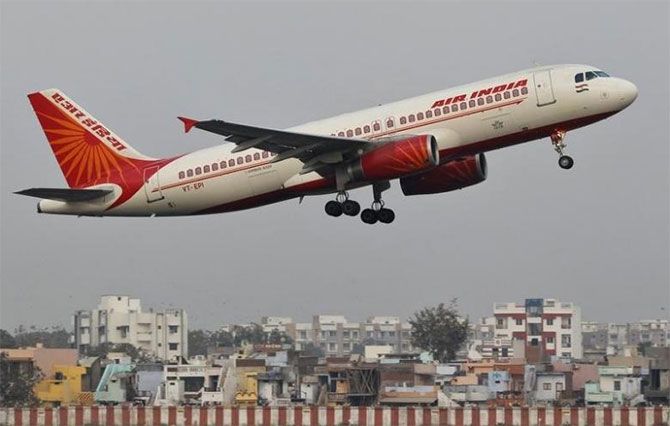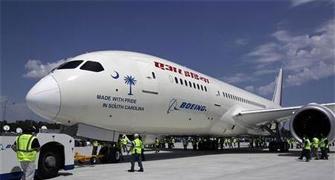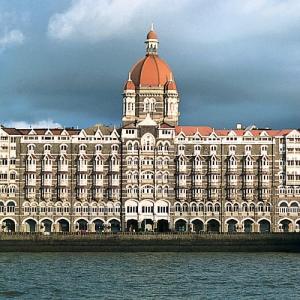Another reason working in Air India’s favour now is the government’s plan to clean up part of the airline’s burgeoning debt from its books - a major deterrent for investors when it attempted divestment the previous time.

State-owned air carrier Air India, which has had little success in enthusing strategic investors so far, might now begin to appear attractive.
Why? The reason is simple: Jet Airways, one of Air India’s key competitors among full service carriers (FSCs), in both domestic and international space, has closed operations.
The planes of debt-strapped Jet are being taken away by lessors and its lenders are making last-ditch efforts to get a buyer - they are in talks with the Hindujas - before the airline’s case is referred to the National Company Law Tribunal (NCLT).
Even if Jet Airways were to revive, it would have to start from the bottom, and building a fleet of the size it had when flying normally (119 planes) would take two to three years.
Meanwhile for Air India, that would be enough time for a new investor to restore it to a sound shape.
Another reason working in Air India’s favour now is the government’s plan to clean up part of the airline’s burgeoning debt from its books - a major deterrent for investors when it attempted divestment the previous time.
A decision has been taken to transfer Rs 29,464 crore of Air India’s working-capital debt not secured by an asset to a new company, Air India Asset Holdings.
As a result, Air India will now have a debt burden of only Rs 25,000 crore, mostly long-term debt secured by aircraft purchases.
Also, its interest outgo will come down to just around Rs 1,700 crore a year.
Thirdly, Jet’s demise has made Air India’s international business look far more attractive to new investors than it did earlier.
For instance, the 5-million-per-year passenger market in Europe, which Jet dominated earlier, is now open for Air India, with no other Indian player competing - IndiGo has only just started a flight to Turkey.
Similarly, in the 0.95-million-per-year US and North American market, Air India now reigns supreme among Indian carriers, with Jet now out of action.
A 12 per cent share of the international passenger market to and from India is up from grabs.
And Air India, by far the biggest Indian player with a 17 per cent share, clearly has the wherewithal to grab a large chunk of Jet’s market.
Most of the other Indian players are low-cost carriers and all of them except IndiGo have limited global operations, mostly only to West Asia and Southeast Asia.
While it is no secret that the focus for Vistara and IndiGo is coming years is going to be international market, Air India currently is far ahead of them.
The government is ready to oblige, too.
It is said to be planning to offer Air India the slots previously used by Jet Airways in markets like India-Dubai or India-Singapore on a preferential basis, albeit temporarily.
With the government not increasing seats through bilaterals in these markets, and the capacity already exhausted, Air India could well leverage its position under a new investor.
In the domestic market, too, Air India has gained significantly from Jet Airways’ fall, despite not having the luxury to add as many new planes as IndiGo.
Its share of the domestic market rose from 12.2 per cent in January to 13.9 per cent in April.
The fourth reason that might make Air India attractive is the fact that 55 per cent of its aircraft are owned by it - the new investor could monetise by selling the aircraft and leasing them back to generate upfront cash and use it for partly paying off its long-term loans.
With a fleet of 163 aircraft (including those of Air India Express and Alliance Air) Air India flies to over 41 international and 54 domestic destinations.
Many investors also shied away from bidding for Air India because they feared destinations from the government, which was to keep a 24 per cent stake under the divestment offer.
But now, if sources are to be believed, the government might even sell 100 per cent in the airline.
The size of the airline’s staff was another contentious issue.
Many potential contenders had suggested that the government should reduce the number of employees through a voluntary retirement scheme before making a divestment offer.
Given a workforce of 26,000, the size of the staff might still be an issue, but some experts suggest that Air India’s staff salaries as a proportion of its revenue is more or less the same as that of Jet Airways, so it should be easily manageable.
Photograph: Reuters










